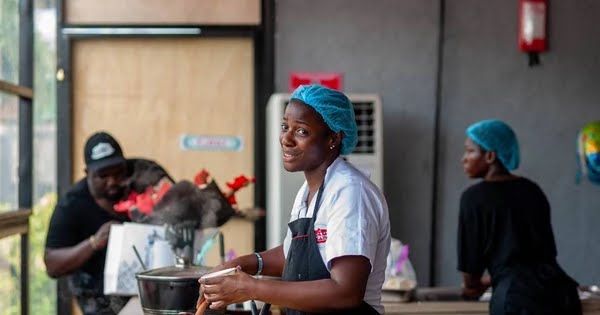Economy
WAMASON Tasks Lagos on Careful Implementation of Ban on Single-Use Plastics (SUPs)

The Waste Management Society of Nigeria (WAMASON) Lagos Council, has commended the Lagos State Government government’s initiative to ban Single-Use Plastic (SUPs) on July 1, 2025 but stressed the importance of a well-structured and inclusive implementation framework for long-term success.
The Lagos State Government has officially begun enforcing its ban on single-use plastics (SUPs), owing to Lagos generating an estimated 13,000 metric tonnes of waste daily, towards tackling the city’s overwhelming waste crisis.
Councilor, WAMASON Lagos Council,
Dr. Gbolahan Yusuf, in a statement emphasised that while the ban and the proposed fund mark a turning point in Lagos’ Environmental Policy, the ultimate success hinges on inclusive planning, evidence-based implementation, and accountable governance.
He reiterated WAMASON readiness to collaborate with the Lagos State Government in forging a sustainable circular economy model that not only protects the environment but also fosters innovation, creates green jobs, and safeguards public health.
Yusuf noted that the path to a plastic-free Lagos is not without its challenges and highlighted several critical issues that need immediate attention.
“One primary concern is the enforcement of the SUP ban. Small businesses and informal vendors, who form the backbone of Lagos’s economy are struggling to find affordable and readily available biodegradable or reusable alternatives. This lack of options could inadvertently stifle their operations.
Furthermore, he said the sheer size and complexity of Lagos present a formidable challenge for effective monitoring and compliance, suggesting that current mechanisms may not be robust enough to police such a widespread ban.
“Compounding these issues is a perceived low level of public awareness. Many citizens and businesses remain inadequately informed about the specifics of the ban and its underlying environmental rationale, potentially hindering voluntary compliance.
WAMASON cautioned against potential risks of mismanagement and the exclusion of the informal sector. “Waste pickers and other informal actors play a vital role in Lagos’s current recycling landscape, and their marginalization could undermine the fund’s
WAMASON also put forth a series of recommendations to navigate the complexity of the ban.
“They propose starting with high-volume government and corporate users like offices and supermarkets, gradually expanding to informal sectors with “grace periods and support packages.” This approach aims to allow businesses time to adapt.
“A critical element is the launch of statewide environmental education campaigns to inform and engage the public. Alongside this, regulatory officers and waste collectors need comprehensive training on monitoring techniques and available alternatives.
To mitigate risks, WAMASON recommends governing the fund through a multi-stakeholder board, including representatives from government, the private sector, academia, and civil society. This board would ensure dedicated support for waste pickers, the informal sector, research into local alternative materials, and youth-led green enterprises.
The council urges a review and harmonization of existing waste management laws to create a cohesive legal framework. Integrating EPR regulations and fiscal policies, such as eco-levies on plastic producers.
-

 Breaking News3 years ago
Breaking News3 years agoBREAKING: CBN Redesigns Naira Notes
-

 Breaking News2 years ago
Breaking News2 years agoBREAKING: Tinubu Considers Temporary Subsidy On Petrol
-

 Breaking News2 years ago
Breaking News2 years agoJUST IN: Gbajabiamila Dies In UK
-

 News3 years ago
News3 years agoDrama As Church Gives Certificate Of Virginity To Ladies After Testing Them (See Photos)
-

 Crime4 years ago
Crime4 years agoUproar As Student Teacher On Teaching Practice Impregnates 24 Girls, Headmistress, Four Female Teachers
-

 Breaking News10 months ago
Breaking News10 months agoJUST IN : Sacked Osun LG Chairman Killed Few Minutes After Returning To Office
-

 Breaking News2 years ago
Breaking News2 years agoBREAKING: Dangote Speaks As BUA Reduces Price Of Cement
-

 Crime3 years ago
Crime3 years agoJUST IN: Gunmen Storm Osogbo, Kill Man, Daughter Few Hours After His Wife Put To Bed (Photos)




